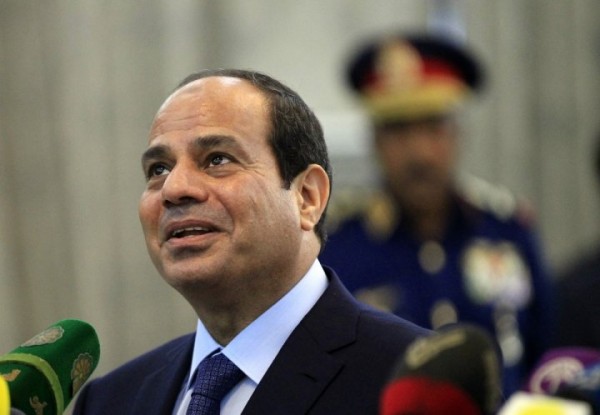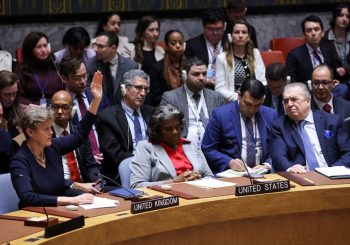A new law granting the President the right to remove heads and members of independent and supervisory bodies has attracted criticism for further centralising executive powers in Egypt.
The law allows for the removal of figures in cases where they “harm national security” or fail to carry out the missions of their position.
The law was passed despite the fact that it is in conflict with Articles 215 and 216 of the current constitution. These articles state that the supervisory and independent bodies are to be consulted regarding regulations and laws that relate to their work, and that the heads of these bodies are to be appointed by the president with a majority approval from parliament, and cannot be removed “except in cases stated by law.”
Some local media outlets have suggested that the law was passed with the intention of suspending Hisham Geneina, the head of the Central Auditing Organisation (CAO), responsible for monitoring state funds and spending, and investigating financial corruption.
Specifically, some see the passing of the legislation as a response to several statements made Geneina accusing certain state institutions – namely the Interior Ministry, the Judges Club and the General Prosecution – of corruption.
Geneina held a press conference in February 2014, in which he revealed that CAO found corruption in the allocation of state lands by the involved state bodies, and referred the case to the general prosecutor’s office. He also requested the formation of a committee to investigate the case. This prompted Ahmed al-Zend, the then head of the Judges Club to state that Geneina would be removed from his position.
According to Egypt’s existing law, the head of the CAO, who is appointed by the President, cannot be removed during their four-year term.
Many have also expressed concern at the unprecedented control the law will give executive branch over independent bodies, whose mission it is to supervise and monitor the executive sphere.







Comments (17)
God bless this God fearing Egyptian man and President of Egypt. He has done everything right for the sake of his nation and people up until this present day. Tahya Misr!
Wow what a Dua. The most brutal ruler of present history, Sisi, who killed thousands of Egyptian, Jailed close to a Million women, men kids as young as 13 years. Systematically raping of boys and girls in jails by Egyptian army man and police. Egypt is again in the hand of the same dictator who rule and looted it for last 60 years.
Dude, this isnt hitler! Not sure who the fuck your following! But best stfu from now on! Keep your bs to yourself!
Sorry, after reading language you have written, It is better I shouldn’t communicate with you. I am not your type of person neither I can response to people by filthy and abusive language. Have fun with Sisi and keep following him.
Killed thousands of Egyptians? Really? Systematically raping of boys and girls in jails?
I found Al Jazeera’s target audience you guys.
This exact law was passed in the US as part of the patriot act. Stop trying to portray Egypt as an evil North Korean style state.
I never heard in US if President was dismissed by Army chief and then he elected himself as President by 98% votes and extended one day of polling b/c number of people voted were not enough. NEITHER heard in US history that elected president just after two years in office was sent to jail, his party was bared from election and two thousands of people were killed on roads and even then victims party chief and leaders were given death penalty. By the way what difference between North Korea and present Egypt? do you see any. In both cases whoever talks against president is either in Jail, exile or killed and their family members and torecher and raped in in jails
What the f**k those anyof that have to do with this law?
Please mind your language, I don’t communicate to the people who become uncivilized and use abusive language if somebody in not agreed to them. How can you be a good commentator if you do not know how to talk.
I didn’t exactly insult you, I just said “What the f**k.” If you’re that sensitive regarding “bad language” then by all means get off the internet.
dont bother with him…..they all talk da same way
they never get to the point
I know, but I will die trying to educate !diots.
Wrong as usual. Take your nose out of Sisi’s end and look around. None of the U.S’s independent agencies – the Federal Reserve, the GAO – were touched.
Corruption will run wild now that Sisi and his gang can control the Audit Board.
Being able to fire people at the Central Bank is also troubling, get ready for currency ruin when The Dictator orders them to start printing pounds to compensate for the bad economy. He’ll be following Mugabe’s playbook.
I’ll be back when you can get 1000 pounds for the dollar.
Who told you he’s firing the people at the Central Bank ? Why would he print more money? No one is stupid enough to do that, this isn’t a Disney movie you imbecile. If anything, the pound is set to increase with the Suez Canal.
Someone out there is extremely eager to turn Egypt to another Syria and believe me, they like the comic writer you just replied to depend on Psychological war more than anything else. Whatever he says are nothing but ‘lies’ (they know it we know it) yet he fails to understand how united the people of Egypt are. We keep reminding these delusional terrorist supporting nations that they are still in a coma and have not yet recovered from the damage of the June 30th 2014 Egyptian revolution that shattered their ME project of creative chaos. Hence the usual elephant sized ‘BS’ they feverishly post on a regular basis.
He doesn’t have to fire them, just threaten them with firing and prosecution.
This law allows him to do that. The Central Bank is no longer independent of Sisi, they have to follow his orders.
Why would this be necessary? The Central Bank has been doing a good job keeping the pound stable. They have some good economists there.
Again, why is this law necessary except for corruption?
You’re so full of $h!t.